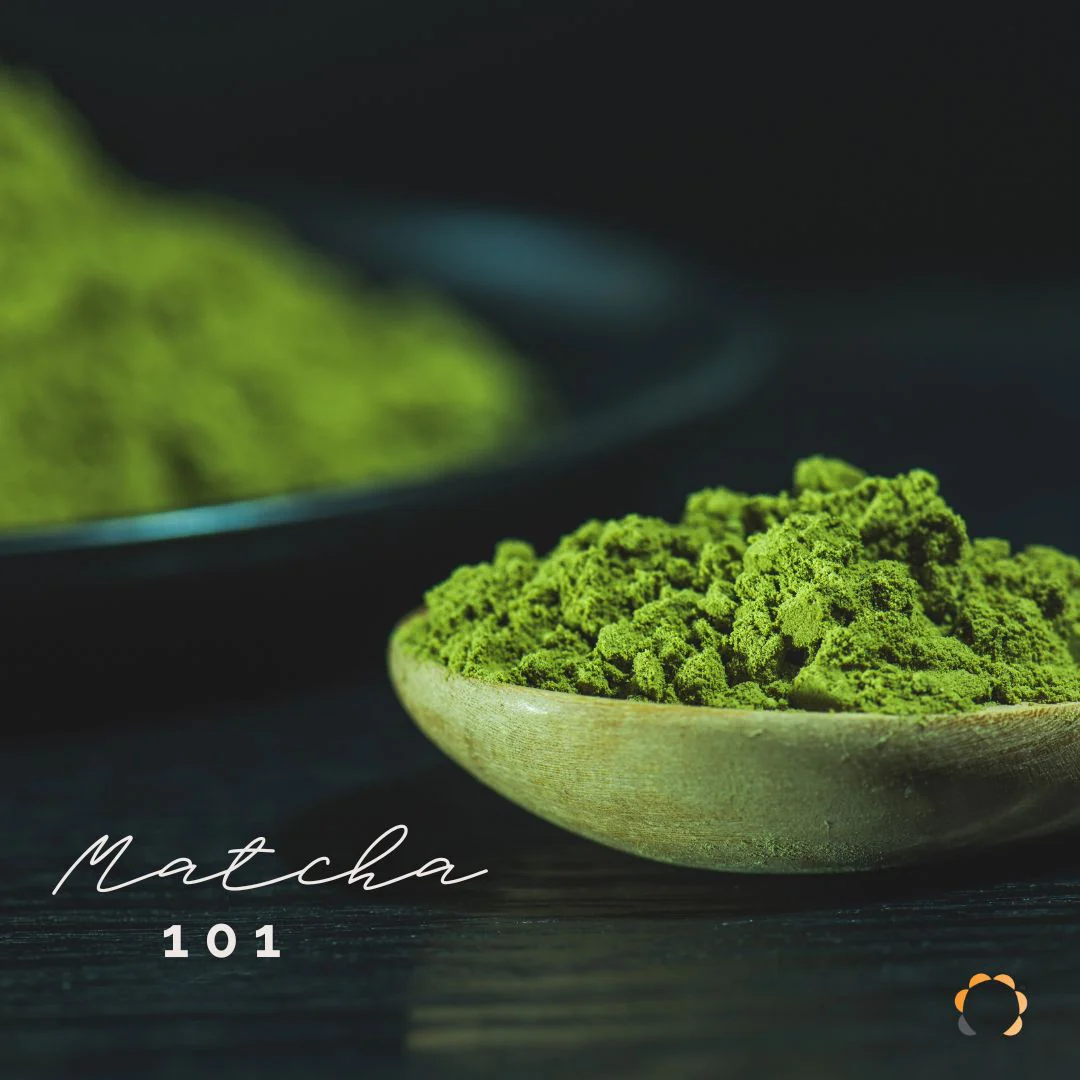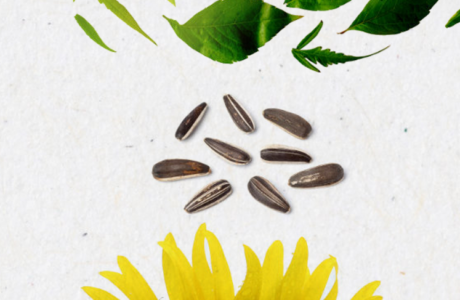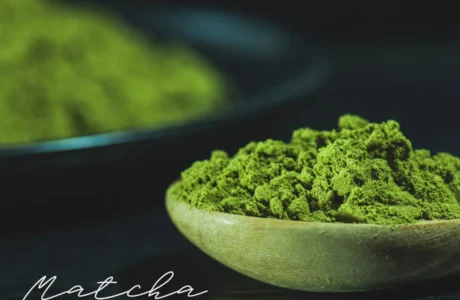High in antioxidants and rich in fibres and vitamins, Matcha is the result of an artisanal process in which the young shoots of the Camellia sinensis – the plant that gives rise to tea – are reduced to a fine powder in a stone mill.
The drink, much appreciated in Japan, has a bright green colour, the result of shading the leaves to accelerate the production of chlorophyll. The result is a tea with a unique flavour and an explosion of properties that are good for your health.
Let’s learn all we need to know about this beverage:
What is Matcha?
Matcha is a green tea with a very different characteristic from other green teas in leaf form: it is a ground green tea, which becomes a very fine powder, finer than talc.
It is necessary to mix the tea powder with water and then beat it until it is completely dissolved before consuming it.
In this way, when we consume it, we absorb much higher amounts of the health enhancing compounds of ”Green Tea”, than when we consume traditionally ‘brewed’ green tea leaves.
This explains one of the main reasons why Matcha has a much higher concentration of the various substances found in green teas, such as a high concentration of antioxidants.
Compared to other foods very well-known to be rich in this substance, for example, broccoli, nuts, red wine, and açai, Matcha has the highest concentration of antioxidants, and these compounds bring us many health benefits, as we will see below.
What are the benefits of Matcha?
Teas have long been revered for their numerous benefits to our physical and mental health.
Studies show that regular consumption of all types of teas can bring us great benefits for our health, whether physical or mental.
In this regard, Matcha has a clear advantage.
Matcha is a delicious and very versatile tea, having become a popularised and very well known ingredient in gastronomy and cocktail culture.
But did you know that regularly consuming it can also be great for your health?
As we mentioned earlier, it is composed of a very fine powder, the result of grinding the green tea leaves, which therefore needs to be dissolved in water to be enjoyed.
For this reason, unlike other teas, when we consume Matcha we are ingesting all the components present, that is, all the positive, health boosting compounds present in the leaves. This makes it very different to traditional green tea, where only the water-soluble compounds are infused into your cup of tea.
Regularly consuming this Matcha tea can bring us numerous benefits for our health.
Check them out here:
High in catechins- an antioxidant which helps fight ‘free radicals’, which are the substances that promote ageing and degradation of the cells;
In matcha, there is a high concentration of catechins, a plant compound which acts as antioxidants, they protect cells from free radicals, which may damage cells and cause chronic diseases.
When you add matcha powder to hot (not boiling)water to make tea, the tea contains all the nutrients from the entire leaf. It will tend to have more catechins and antioxidants than simply steeping green tea leaves in water.
It is stimulating but calming
Matcha also contains L-theanine, a kind of cousin of caffeine. The L-theanine in tea, unlike caffeine in coffee, is released gradually in the body over about four hours.
In the case of Matcha, the release time is even longer, for about six hours, and without an increase in blood pressure or heart rate. It therefore provides vitality and mental clarity and concentration lasting for a long period. Boosting intellectual performance and concentration without the acceleration and ‘crash’ associated with caffeine.
It is ultra healthy
In addition to the antioxidant power of green tea, which neutralizes the action of free radicals, Matcha is high in vitamins, regulates cholesterol levels, improves blood circulation and metabolism.
It might help you in weight loss
Drinking matcha is perfect for those who want to eliminate a few pounds.
Matcha has almost no calories. Additionally, it is a great way to boost your metabolism and eliminate toxins from your body, helping you to lose weight.
Matcha can also optimise calorie consumption by as much as 25% during exercise. This is due to Matcha’s thermogenic action, which makes it easier for your body to burn fat along with your calories.
Does Matcha have caffeine?
One of the questions I always hear in courses about Matcha is if it contains caffeine or not, or if it has ‘theine’ or not.
Matcha contains ‘theine’, a kind of cousin of caffeine. Theine and caffeine are the same molecule, but metabolized differently in the body. The theine in tea, unlike the caffeine in coffee, is released gradually in the body over about four hours.
In the case of Matcha, the release time is even longer, for about six hours, and without an increase in blood pressure or heart rate.
Is there a ritual to its preparation?
In its traditional form, the preparation of this tea powder requires the use of the utensils that are used during the Japanese tea ceremony.
There are specific utensils for the tea ceremony, which must be very clean, or even sterilized. The tea itself, for example, is in a kettle, but there is also a proper bowl (called chawan), a bamboo whisk (chasen), a silk scarf (fukusa) and a spatula for serving tea (chashaku). This is just to name a few of the utensils!
If you are wondering what the scarf is for: it is used to purify all the objects that will be used in the preparation of tea.
With the help of these specific utensils, we guarantee a very homogeneous drink with a thick layer of foam on the surface.
The Tea Ceremony: Wa, kei sei and jaku.
Harmony, respect, purity and tranquillity
In fact the traditional and sacred tea ceremony is so much more than simply serving a refreshing drink!
It represents four values: harmony (wa), respect (kei), purity (sei) and tranquillity (jaku).
All of them relate to the presence of the guest, since the ceremony is always performed for another person, and never for oneself.
Harmony, for example, has to do with the healthy relationship between the guest and the host, while respect is related to the ability to understand the other.
Purity speaks not only to the cleanliness of the utensils, but also to the feeling of peace during the ceremony.
Finally, we have Tranquility, which is the feeling achieved by having put the other values into practice.
If you don’t have one yet, you can get a bamboo whisk in our online shop or prepare your Matcha modern style.
To do this you can mix your matcha in any container of your choice with water using a fork, whisk or blender, for example.
Matcha can be drunk hot or cold.
How to prepare your Matcha?
- Place one measure of Matcha in the bowl.
- Add 50ml of hot water (minimum 80 degrees).
- Stir slowly with the bamboo whisk until the powder is dissolved.
- At the end, whisk vigorously until foamy.
- Add 80 ml to 100 ml of hot water (minimum 80 degrees) to complete.
And here it is worth mentioning another quality of Matcha: the yield.
Because it is quite concentrated, it yields 150 ml of tea with just one measure – or 1.5g – of green powder.
How to store Matcha
It is recommended to keep it in a cool, dark place- protected from light, humidity and high temperatures.










